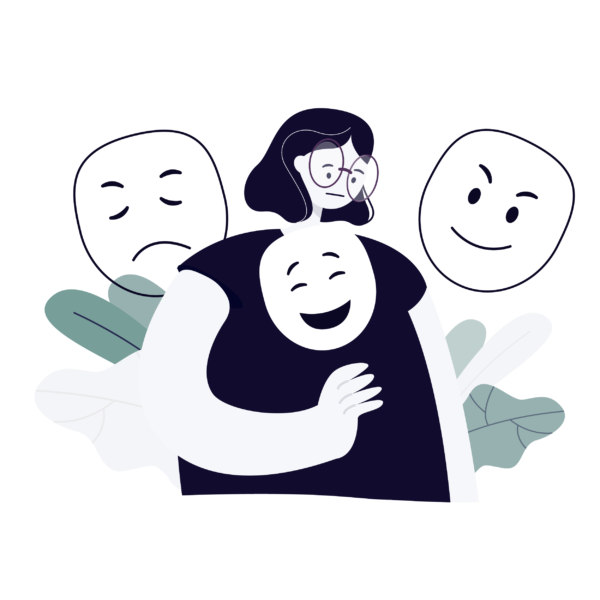Emotional Dysregulation
When your emotions feel overwhelming or out of control, it can affect how you respond to situations and interact with others. Emotional dysregulation may cause impulsive behaviors, mood swings, or difficulty managing stress. We will help you recognize emotional triggers, build resilience, and practice healthy coping mechanisms. Together, we will focus on emotional regulation strategies to help you regain control over your feelings and improve your relationships and overall quality of life.
Frequently Asked Questions
What is emotional dysregulation?
Emotional dysregulation refers to difficulties in managing intense emotions, leading to overwhelming feelings or impulsive reactions. People with emotional dysregulation may struggle to control anger, sadness, or anxiety, often feeling that their emotions are unpredictable or out of control.
What causes emotional dysregulation?
Emotional dysregulation can stem from a variety of factors, including past trauma, chronic stress, childhood experiences, or underlying mental health conditions such as borderline personality disorder (BPD), anxiety, or depression.
How can therapy help with emotional dysregulation?
Therapy provides tools to understand, process, and regulate your emotions more effectively. Techniques like Dialectical Behavior Therapy (DBT) and Cognitive Behavioral Therapy (CBT) are often used to help manage emotional responses, build resilience, and improve overall emotional well-being.
What are the signs of emotional dysregulation?
Common signs include intense mood swings, impulsive behaviors, difficulty calming down after an emotional trigger, feeling emotionally overwhelmed, and challenges in maintaining stable relationships. If these symptoms are affecting your daily life, therapy can help.
Can online therapy help with emotional dysregulation?
Yes, online therapy offers a convenient and effective way to work on emotional regulation from the comfort of your own space. Through regular video sessions, I can guide you in developing coping strategies and emotional regulation techniques tailored to your needs.
How long does it take to see improvements in emotional regulation?
Improvements vary depending on the individual and the severity of emotional dysregulation. Some clients may notice changes within a few sessions, while others may require longer-term therapy to build effective emotional regulation skills.
Is emotional dysregulation linked to other mental health issues?
Yes, emotional dysregulation is often associated with conditions like anxiety, depression, borderline personality disorder, and post-traumatic stress disorder (PTSD). Addressing emotional dysregulation can help in managing these related issues.
How do I start therapy for emotional dysregulation?
You can book an initial consultation through my website to explore how therapy can help with emotional regulation. Together, we’ll create a personalized plan to help you gain control over your emotions and improve your mental well-being.

